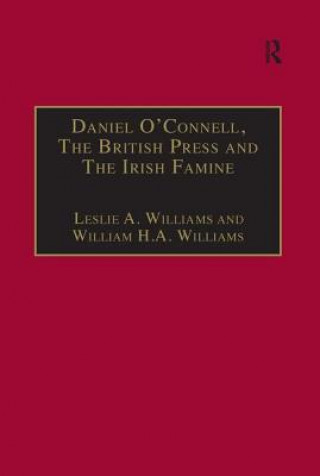
Kézbesítés
Vásárlási tanácsadó





Nem vált be? Semmi gond! Nálunk 30 napon belül visszaküldheti
 Ajándékutalvány
bármilyen értékben
Ajándékutalvány
bármilyen értékben
Ajándékutalvánnyal nem nyúlhat mellé. A megajándékozott az ajándékutalványért bármit választhat kínálatunkból.
Daniel O'Connell, The British Press and The Irish Famine
 Angol
Angol
 476 b
476 b
30 nap a termék visszaküldésére
Ezt is ajánljuk


Through an investigation of the reportage in 19th-century English metropolitan newspapers and illustrated journals, this book begins with the question "Did anti-O'Connell sentiment in the British press lead to 'killing remarks', rhetoric that helped the press, government and public opinion distance themselves from the Irish Famine?". The book explores the reportage of events and people in Ireland, focusing first on Daniel O'Connell and then on debates about the seriousness of the famine. Drawing upon such journals as "The Times", "The Observer", "The Morning Chronicle", "The Scotsman", the "Manchester Guardian", the "Illustrated London News", and "Punch", Williams suggests how this reportage may have brought about Britain's response to Ireland's tragedy. Continuing her survey of the press after the death of O'Connell, Leslie Williams demonstrates how the editors, writers and cartoonists who reported and commented on the growing crisis in peripheral Ireland drew upon a metropolitan mentality. In doing so, the press engaged in what Edward Said identifies as "exteriority", whereby reporters, cartoonists and illustrators, basing their viewpoints on their very status as outsiders, reflected the interests of metropolitan readers. Williams argues that the biases in language and the presentation of information proved dangerous. She illustrates how David Spurr's categories or tropes of invalidation, debasement and negation are frequently exhibited in the reports, editorials and cartoons. However, drawing upon the communications theories of Gregory Bateson, Williams concludes that the real "subject" of the British Press commentary on Ireland was Britain itself. Ireland was used as a negative mirror to reinforce Britain's own commitment to capitalist, industrial values at a time of great internal stress.
Információ a könyvről
 Angol
Angol




 Hogyan vásároljunk
Hogyan vásároljunk






















